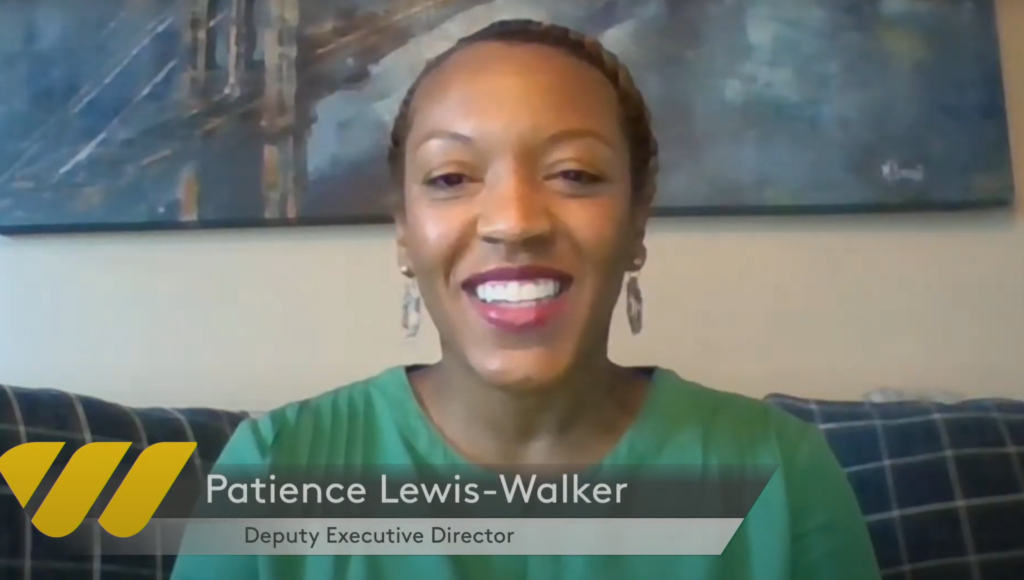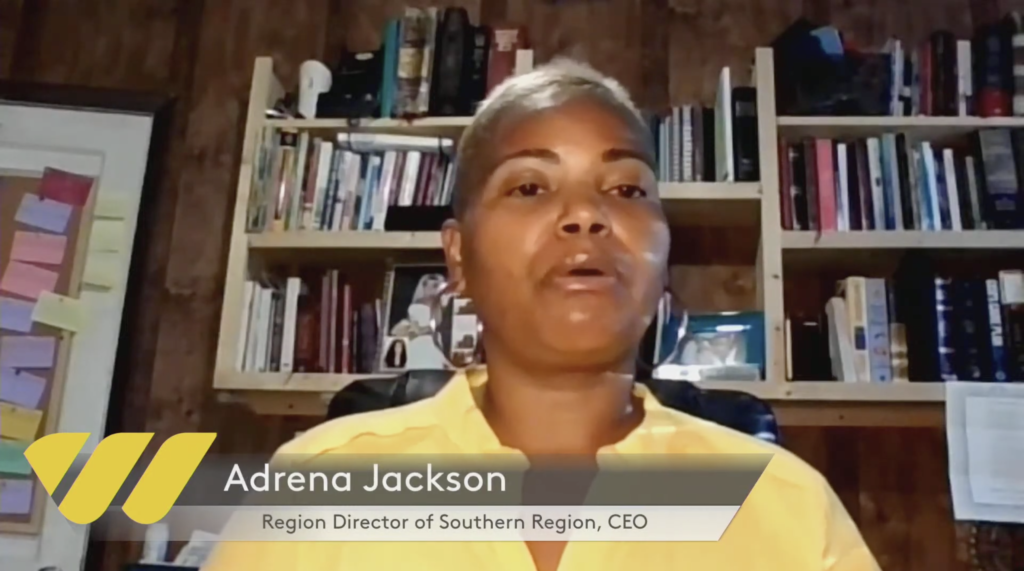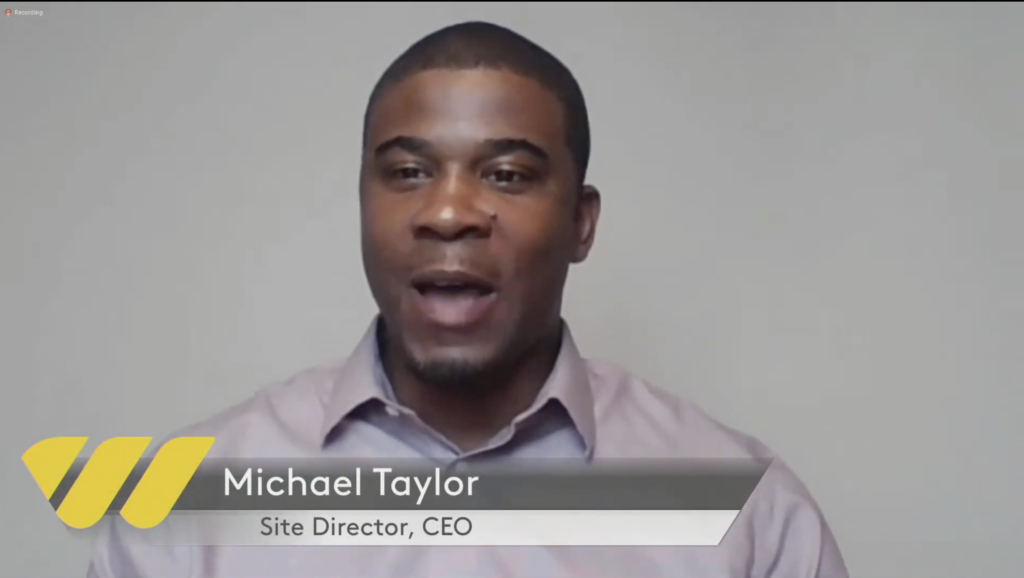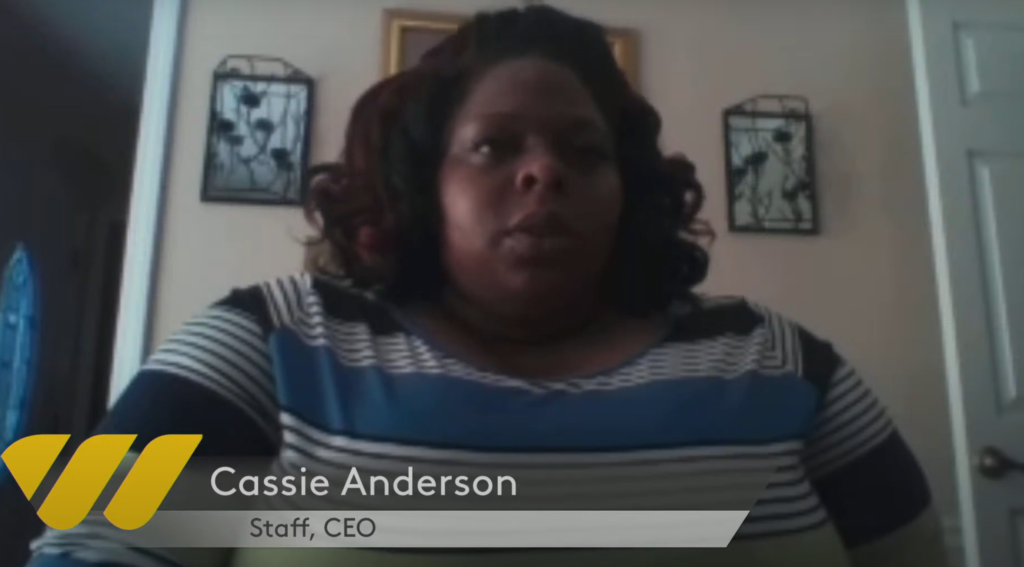June 18th Virtual Transform Westside Summit: Center for Employment Opportunities
Westside Future Fund Correspondents and summit hosts, Benjamin Earley and Ebony Ford, opened the Juneteenth edition of the Virtual Transform Westside Summit with a brief history of the holiday which commemorates the liberation of the last African Americans to learn of their freedom two years after the signing of the Emancipation Proclamation in 1863. “Juneteenth is a celebration of not only black perseverance, not only black strength, not only black freedom,” said Earley. “It’s a celebration of everything that we are as a people, everything that we’ve accomplished as a people and everything that we will accomplish going forward.” The duo went on to encourage viewers to support Black businesses and nonprofits and to further educate themselves on the disparities the African American community continues to face as the legacy of slavery and systemic racism live on.

Such disparities include those of disproportionate poverty and mass incarceration. The June 18th Virtual Transform Westside Summit highlighted the Center for Employment Opportunities (CEO), which works to reduce recidivism and increase employment by providing people returning from prison immediate paid employment, skills training, and ongoing career support. Moderated by Westside Future Fund’s President & CEO, John Ahmann, the featured panel discussion included key CEO personnel: Patience Lewis-Walker, Deputy Executive Director, Mid-Atlantic, Southern Regions & Mountain Plains; Adrena Jackson, Regional Director of the Southern Region; Michael Taylor, Atlanta Site Director; and Cassie Anderson, Retention Specialist & Former Program Participant.
CEO’s Theory of Change posits that if the employment needs of persons with criminal convictions are addressed at their most vulnerable point—when they are first released from incarceration or soon after conviction—by providing life skills education, short-term paid transitional employment, full-time job placement, and post-placement services, they will be less likely to become reincarcerated and more likely to build a foundation for a stable, productive life for themselves and their families.

Deputy Executive Director Patience Lewis-Walker said having time to refine the model has been a contributing factor in CEO’s success, but the secret sauce comes down to “having a team that’s passionate about the work.” The organization works to support reformed individuals throughout the United States, Atlanta being one of 31 cities where CEO is active. Lewis-Walker spoke about CEO’s Credible Messenger Initiative (CMI), which paired young adult participants with full-time mentors who shared similar lived experiences to build trust and connection and to support them throughout their participation in CEO’s program. The initiative demonstrated that youth who were paired with a Credible Messenger Mentor exhibited higher levels of program participation and achieved more successful outcomes as compared to youth enrolled in CEO programs who did not participate in the initiative. This evaluation has broad implications for the credible messenger, youth development, and workforce development fields.

Adrena Jackson, Regional Director of the Southern Region, shed light on how CEO works with employers to best benefit them and address the needs of their clientele at the same time. BAMs (Business Account Managers) network with employers in the community to make them aware of the program while learning of skill sets employers require in order to better prepare CEO participants. Of the the latter, Jackson said, “They’re getting that reinforcement from our job coach. Preparing them to overcome any barriers that they may have is why our BAM is also in the community making those employer connections and then making the perfect match between the participant and the employer.”

Site Director Michael Taylor shared details about how program participants are selected: “Our criteria is the individual has to be 18 years or older, justice involved and or currently on some form of community supervision, i.e., probation or parole, and they have to be a US Citizen or permanent resident as well as able to complete manual labor.” Taylor added, “We accept all participants regardless of the conviction or the offense that they may have committed.” Showing CEO’s commitment to participant success after placement, Taylor said “if they’re willing to get on the bus or take a train and get to us we’ll make sure they get there and get there safely.”

Cassie Anderson shared her personal story of going from program participant to Retention Specialist at CEO’s Memphis location. Anderson said her role was to “make sure participants stay connected to the program by following up with them two to three times a month, to note any changes with them.” CEO’s commitment to each individual and their needs is central to the model continuing to produce success stories like Anderson’s. Donate to CEO today.

